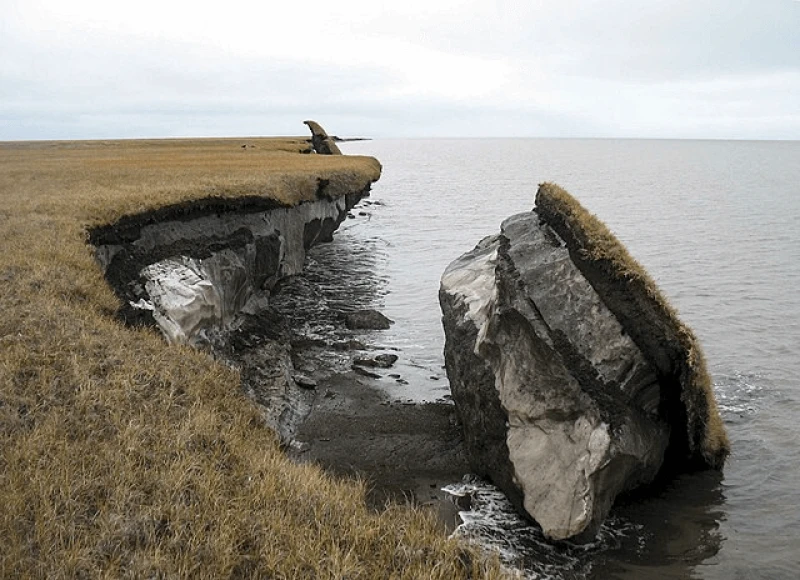Methane is 28 times more powerful than CO2, and it’s increasing in the atmosphere. Here’s why and what must be done
Methane is 28 times more powerful than CO2, and it’s increasing in the atmosphere. Here’s why and what must be done


The greenhouse gas methane is 28 times more powerful than CO2, and its presence is increasing in the atmosphere.
The main reason for the increase in methane is emissions from wetlands, which are expanding as the world warms, according to a research report from the Norwegian Institute for Air Research (NILU).
According to the report, the main reason is that more methane has been released from wetland areas such as bogs, shallow ponds, and lakes in tropical regions. And as it gets warmer, more is released.
“The temperature change leads to increased microbiological activity,” researcher Stephen Matthew Platt says. He is one of the researchers behind the new study.
Processes like decomposition in wetlands happen faster when it gets warmer.
Another reason for the increase in methane emissions is that permafrost has begun to thaw in the north.
…
Platt points out that because it is difficult to do something about methane emissions from wetlands, the consequence is that these emissions must be more significantly reduced from other sources.
“Methane is a very potent greenhouse gas and is about 28 times more powerful than CO2. If emissions from wetlands continue to rise, we need greater cuts in methane either from man-made sources or in CO2 emissions to meet the goals of the Paris Agreement,” he says.
This is an excerpt. Read the original post here

 | Videos | More... |

Video: Nuclear energy will destroy us? Global warming is an existential threat? Chemicals are massacring bees? Donate to the Green Industrial Complex!
 | Bees & Pollinators | More... |

GLP podcast: Science journalism is a mess. Here’s how to fix it

Mosquito massacre: Can we safely tackle malaria with a CRISPR gene drive?

Are we facing an ‘Insect Apocalypse’ caused by ‘intensive, industrial’ farming and agricultural chemicals? The media say yes; Science says ‘no’
 | Infographics | More... |

Infographic: Global regulatory and health research agencies on whether glyphosate causes cancer
 | GMO FAQs | More... |

Why is there controversy over GMO foods but not GMO drugs?

How are GMOs labeled around the world?

How does genetic engineering differ from conventional breeding?
 | GLP Profiles | More... |

Alex Jones: Right-wing conspiracy theorist stokes fear of GMOs, pesticides to sell ‘health supplements’




 Viewpoint — Fact checking MAHA mythmakers: How wellness influencers and RFK, Jr. undermine American science and health
Viewpoint — Fact checking MAHA mythmakers: How wellness influencers and RFK, Jr. undermine American science and health Viewpoint: Video — Big Solar is gobbling up productive agricultural land and hurting farmers yet providing little energy or sustainabilty gains
Viewpoint: Video — Big Solar is gobbling up productive agricultural land and hurting farmers yet providing little energy or sustainabilty gains Fighting deforestation with CO2: Biotechnology breakthrough creates sustainable palm oil alternative for cosmetics
Fighting deforestation with CO2: Biotechnology breakthrough creates sustainable palm oil alternative for cosmetics Trust issues: What happens when therapists use ChatGPT?
Trust issues: What happens when therapists use ChatGPT? 30-year-old tomato line shows genetic resistance to devastating virus
30-year-old tomato line shows genetic resistance to devastating virus California, Washington, Oregon forge immunization alliance to safeguard vaccine access against federal undermining
California, Washington, Oregon forge immunization alliance to safeguard vaccine access against federal undermining The free-range chicken dilemma: Better for birds, but with substantial costs
The free-range chicken dilemma: Better for birds, but with substantial costs ‘You have to treat the brain first’: Rethinking chronic pain with Sanjay Gupta
‘You have to treat the brain first’: Rethinking chronic pain with Sanjay Gupta
